Integrating Mental Health into Peacebuilding: Promoting Healing and Resilience for Sustainable Peace
Inclusivity | October 2025
On Friday, October 10, the Peacemakers Network hosted its fourth and final Inclusivity-based Community of Practice meeting of 2025, “Integrating Mental Health into Peacebuilding: Promoting Healing and Resilience for Sustainable Peace.” Click here to watch the event recording.
The Peacemakers Network’s Senior Specialist on Inclusive Peace, Jessica Roland, began the meeting by welcoming the 52 participants (34 female, 18 male) and providing an overview of the agenda. The discussion then turned to a panel featuring seven Mental Health and Psycho-Social Support (MHPSS) advocates in peacebuilding who discussed lessons and opportunities in advancing the integration of mental health in peacebuilding efforts.
The panel consisted of speakers: Angi Yoder-Maina, Executive Director of the Green String Network; Rodge Lelis, Mental Health and Psychosocial Support Technical Advisor; Ufra Mir, Peace Psychologist and Founding Director of the International Center for Peace Psychology; Andres Martinez, Latin America and Caribbean Regional Coordinator for the Joint Learning Initiative on Faith and Local Communities; Sarah van der Walt, Senior MHPSS Policy Adviser for HealthNet TPO; Lyla Schwartz, Program and Psychology Director for PoMa Global; and Allizandra Herberhold, Exit Interventionist for Parents for Peace.
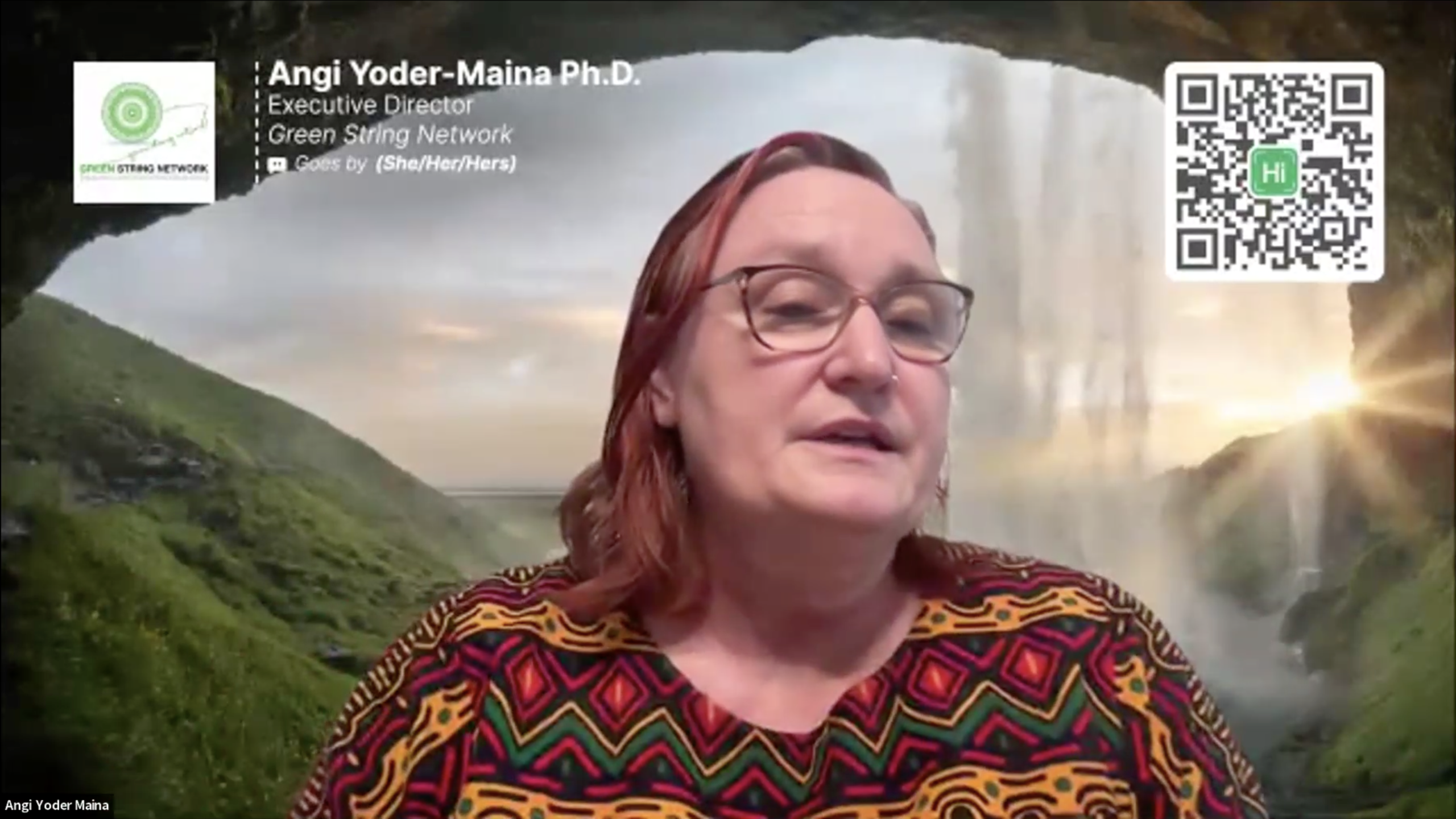
Angi Yoder-Maina opens the panel by advocating for sustainable resourcing to ensure consistent service provision and community support.
Angi Yoder-Maina began the conversation by emphasizing the impact trained peacebuilders can make and calling for sustainable resources, stating that “infrastructure outlasts funding; services don’t.” She underscored the value of training with a self-replicating capacity to ensure services can reach as many as possible by highlighting impactful stories of community mobilization, calling to strengthen peacebuilding through MHPSS considerations of collective suffering and trauma. Yoder-Maina stressed the minimal funding MHPSS services receive, with less than one percent of Kenya’s budget going to mental health support, underpinning the need to frame trauma and collective suffering as a social crisis requiring community response.
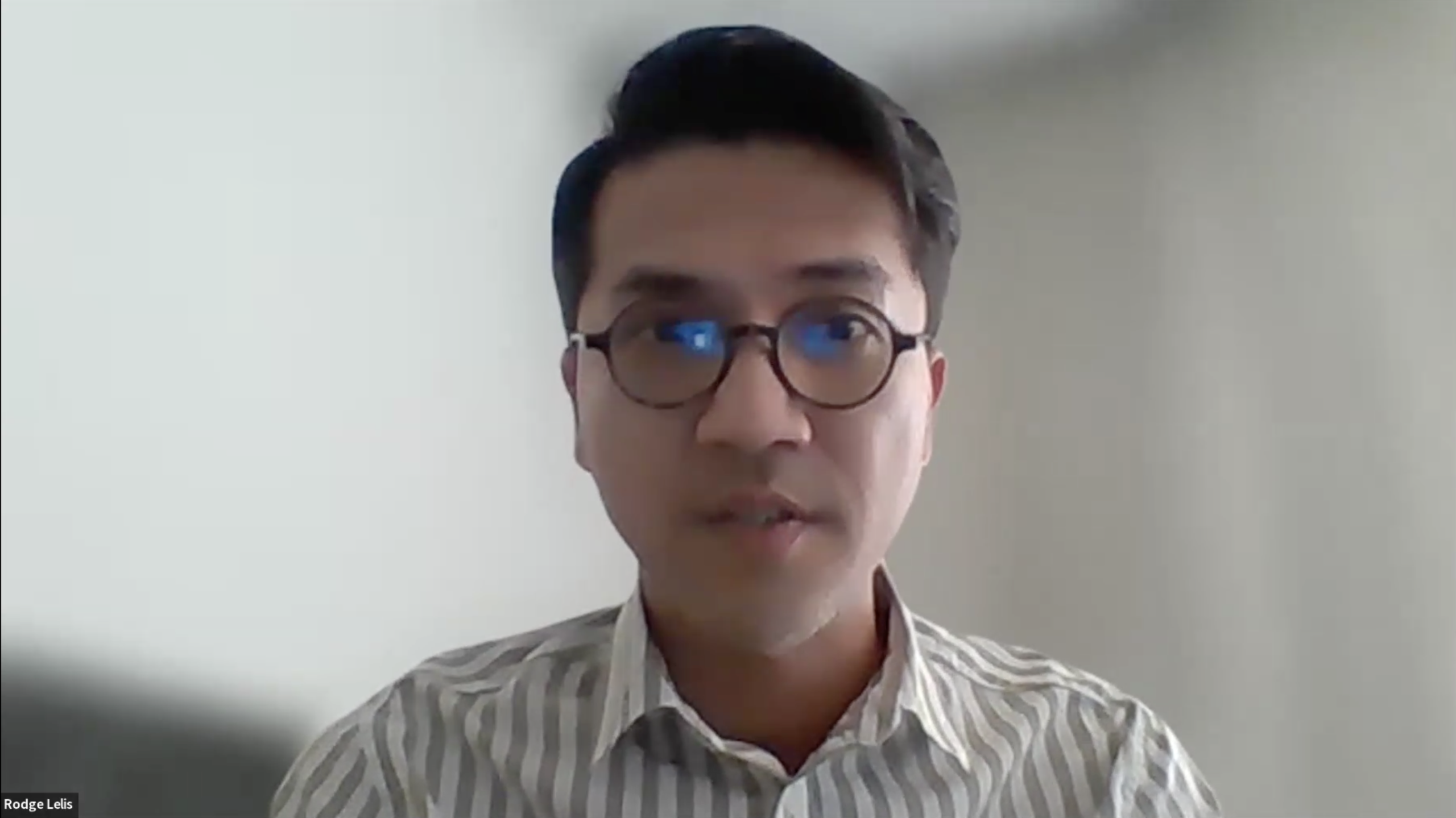
Rodge Lelis speaks about strengthening connections between peacebuilding and MHPSS to advance more sustainable programming.
Rodge Lelis further emphasized the urgent need to invest in local expertise, using MHPSS as the starting point to incorporate mental health into programming. He urged peacebuilders to use MHPSS as an entry point, prioritizing a more integrated approach to peacebuilding to restore trust and rebuild social cohesion post-conflict. He called to “ensure mental well-being is viewed as a resource for peace,” strengthening local capacities and fostering empathy through training for local peacebuilders. Lelis affirmed that peacebuilding and MHPSS must strengthen their conceptual ties to integrate sustainable programming and improve funding opportunities.
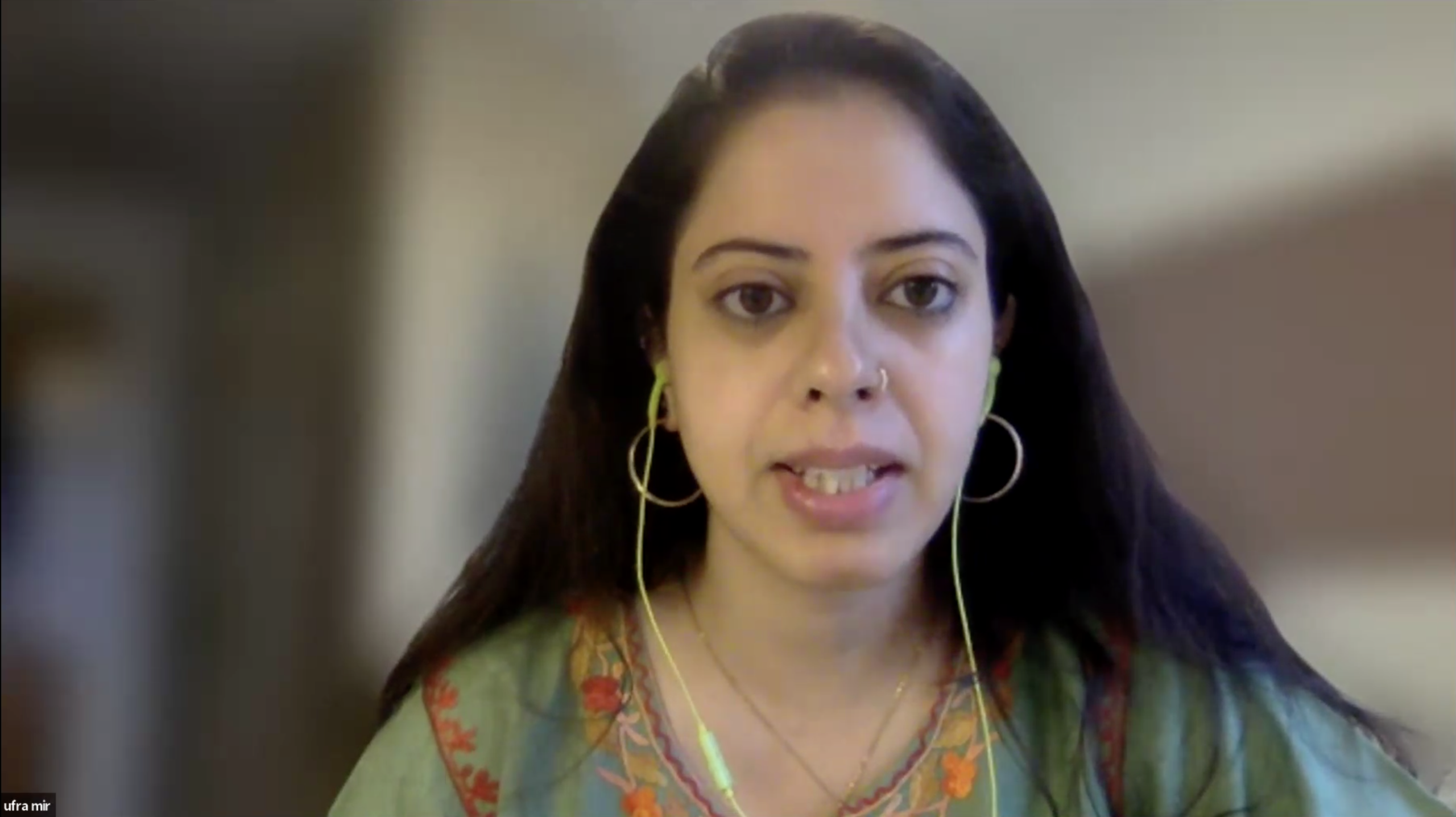
Ufra Mir shares about amplifying local actors and MHPSS practices in peacebuilding processes.
Ufra Mir spoke about her work at the intersection of mental health and peacebuilding, emphasizing that her key takeaway has been to build lasting connections to communities. Mir advocated for utilizing decolonization principles by ensuring work is grounded in local contexts and elevating existing community actors and resources. She stated, “You can be a facilitator holding space for people and they know how to heal; they’ve been doing this for a long time without you.” Mir urged for mental health to be recognized as a political and social issue, acknowledging that MHPSS varies contextually and affirming oppressed communities’ ownership of resilience and trauma healing in peacebuilding processes.
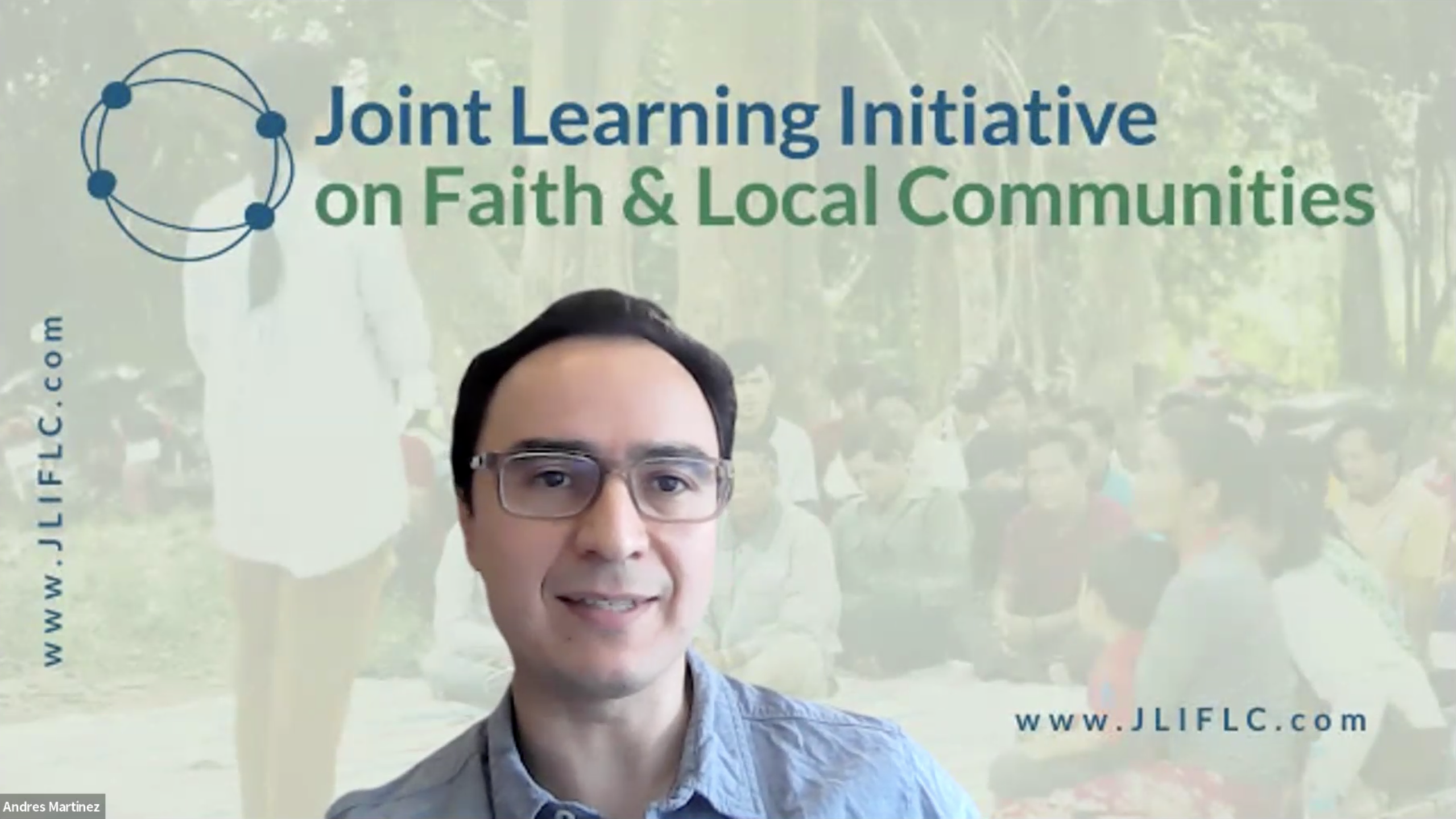
Andres Martinez speaks about creating new entry points for peacebuilding and MHPSS services.
Andres Martinez then reaffirmed the need to build on community-based needs, understanding what is happening on the ground and what can be built upon. This process includes identifying key partnerships, local practices, and existing knowledge to work with religious leaders and other influential actors within communities. Martinez called for peacebuilders and mental health specialists to broaden their considerations of MHPSS, stating, “Beyond looking at the individual structures in MHPSS, we should look at the social structures that are basically the reason for MHPSS issues in the first place.” He emphasized that constraints can be leverage points; with old intervention systems being redefined and funding shrinking, peacebuilders need to partner with new local actors influencing the psychosocial field.
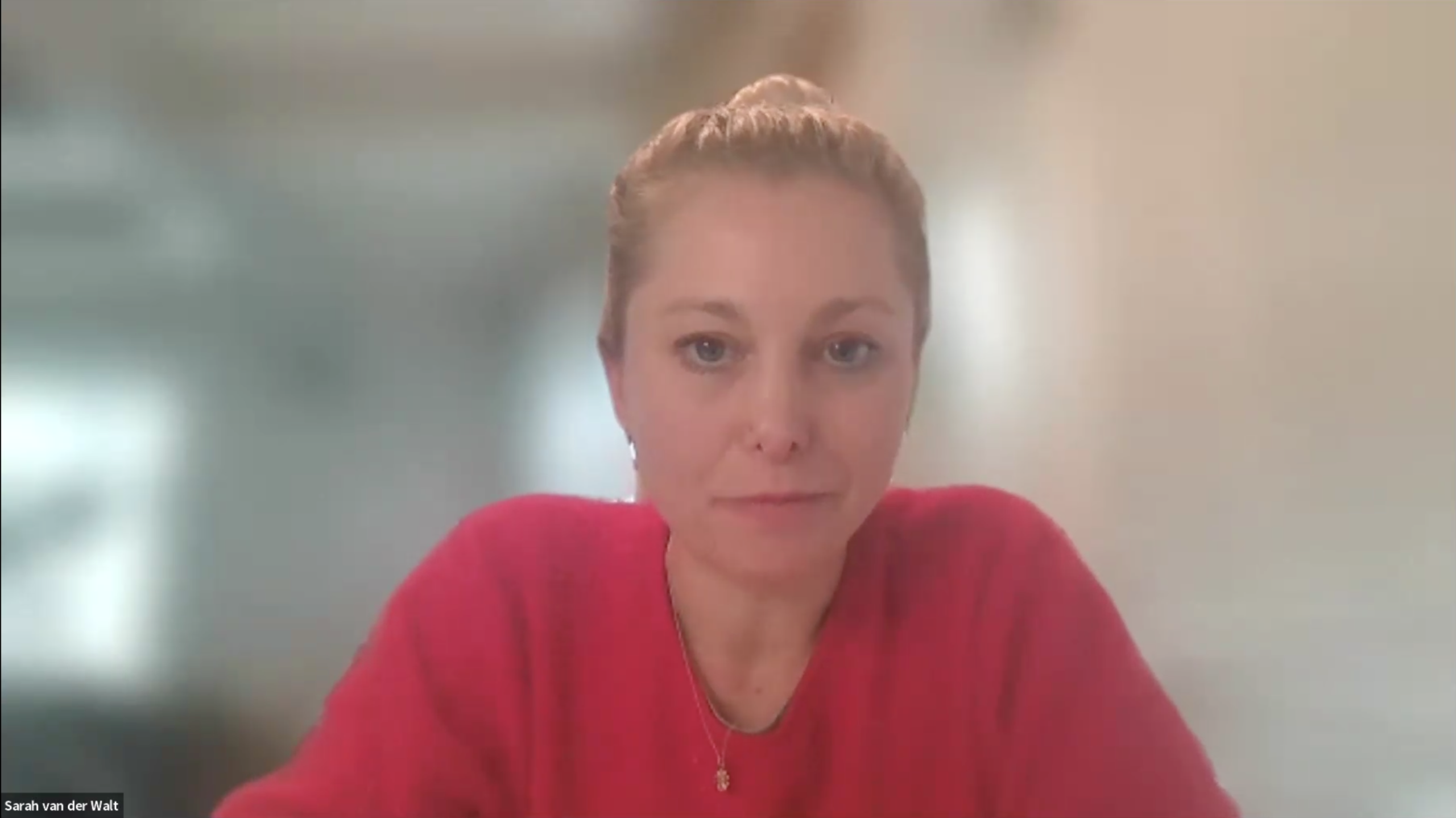
Sarah van der Walt presents examples of how MHPSS approaches enhance peacebuilding processes.
Sarah van der Walt then presented key reasons to integrate MHPSS into peacebuilding processes. She highlighted that MHPSS actors are already working with social systems to map out factors and linkages that support communities while positioning a sense of safety as foundational to their work. Without a sense of safety, there can be no opportunities to build connections or foster change for peacebuilding. Van der Walt stressed that “The personal is political;” radical change occurs through personal and collective awareness, enshrining peace, social cohesion, and communication as the foundation for harmony and respect. She flagged rising pushback against neutrality and failure to integrate mental health in peacebuilding, calling to address the political grounds necessary for achieving positive mental health.
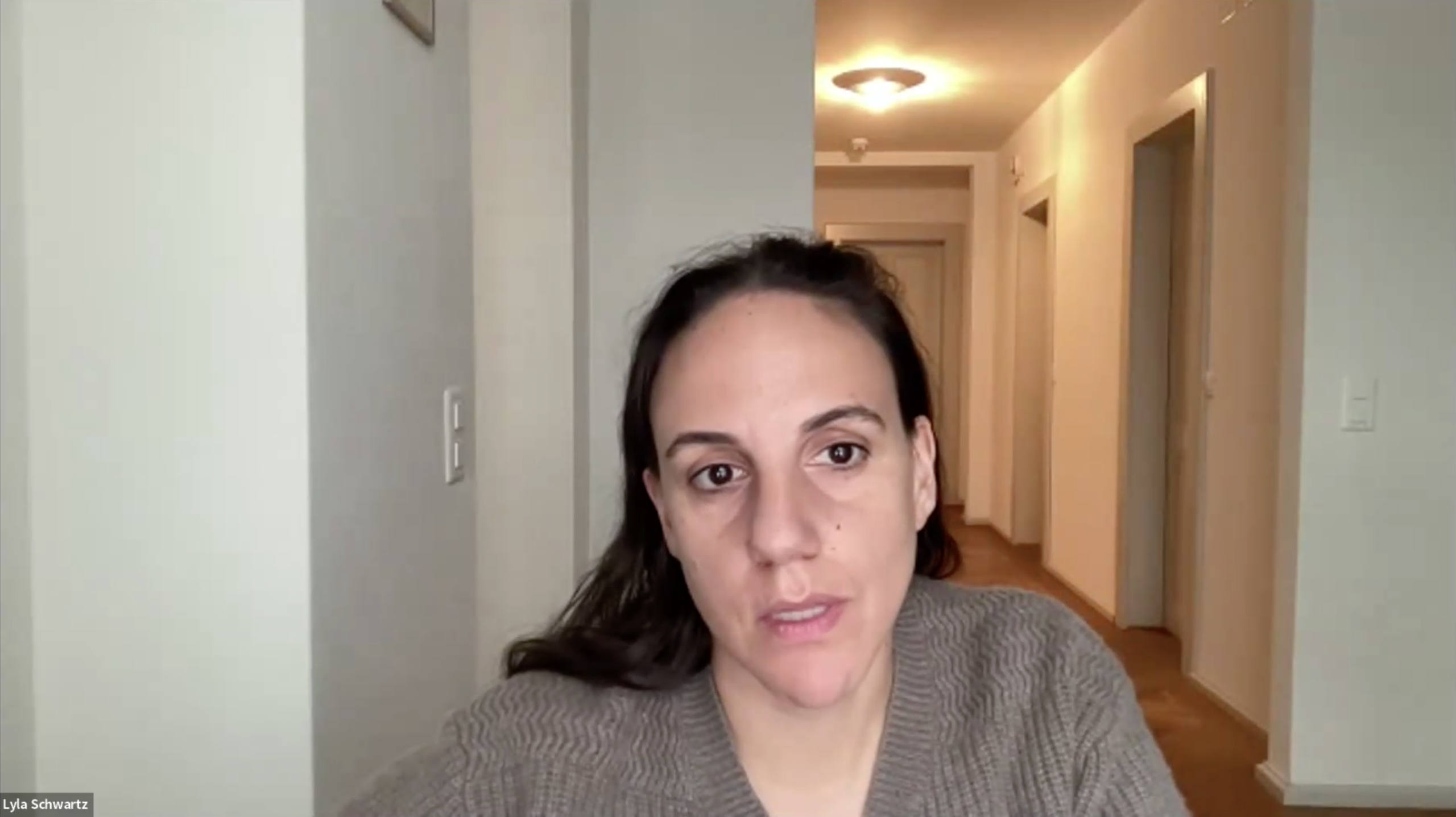
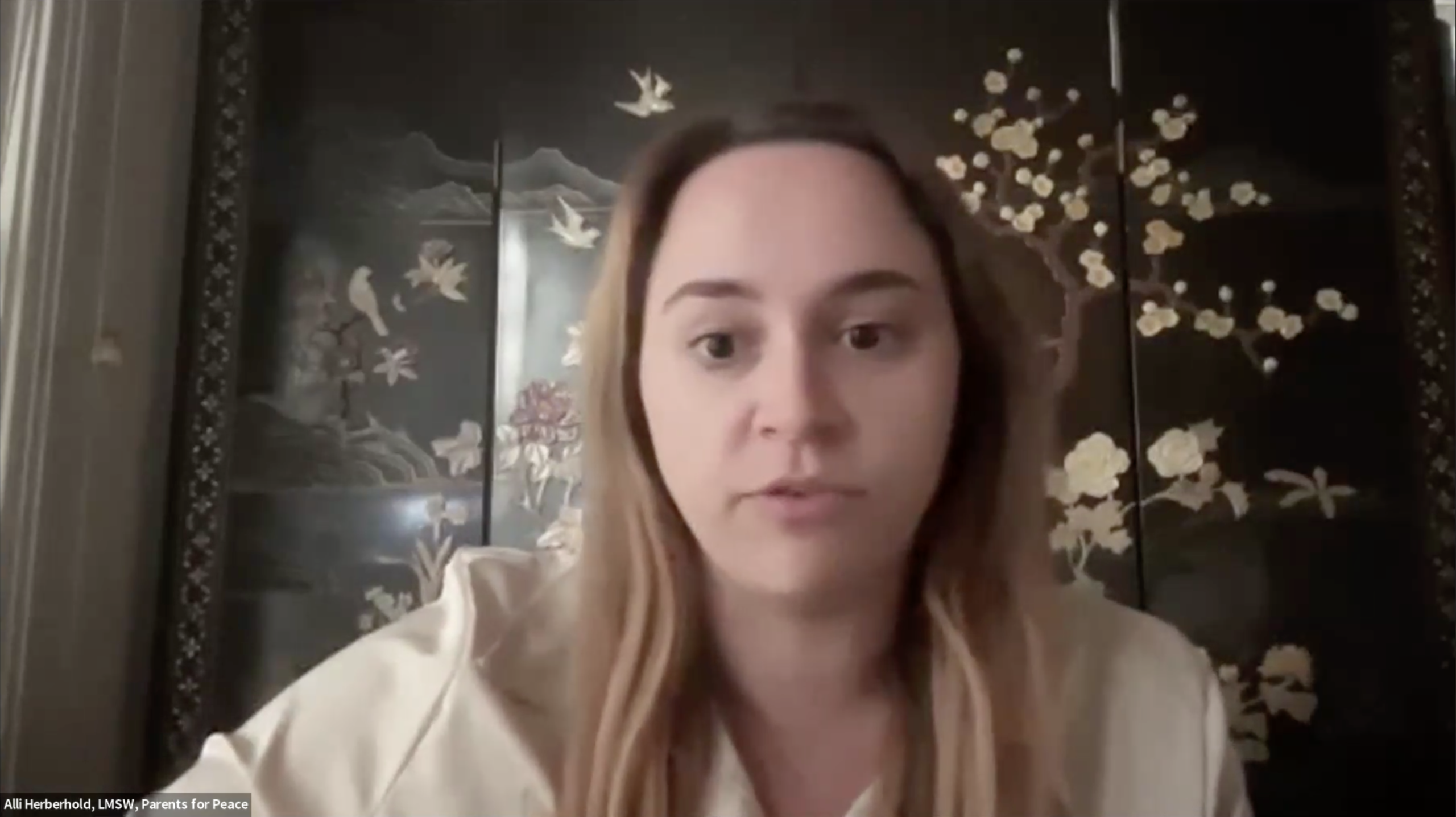
Lyla Schwartz and Allizandra Herberhold calls for a more holistic framing of MHPSS to support more peaceful and inclusive societies.
Finally, Lyla Schwartz and Allizandra Herberhold expanded upon their work to slow down intergenerational trauma, emphasizing that Parents for Peace does more than MHPSS because MHPSS can encompass everything. They support the individual and their families to create an empathic space for recovery and make communities safer, utilizing a holistic approach to advance peace through integration. Herberhold stated, “We’re building peace through hope and recovery from hate, and helping people get off the pathway to violence.” Schwartz and Herberhold positioned that there is a disproportionate focus on mental health and not on mental well-being, calling for a wider reframing of MHPSS to build inclusive communities that promote peacebuilding through collaboration.
The discussion then progressed into breakout groups, allowing participants to share their experiences and best practices for engaging with MHPSS approaches in peacebuilding processes. Participants also explored ways for those in the broader peacebuilding space to be more mindful of mental health and well-being in their peacebuilding work. Based on these group discussions, below are further strategies and recommendations to enhance the integration of mental health and well-being in peacebuilding efforts.
Follow the Peacemakers Network on social
